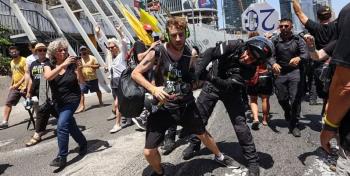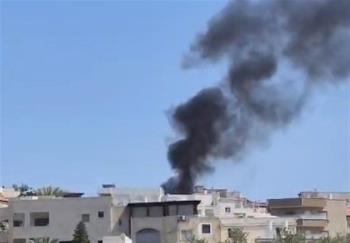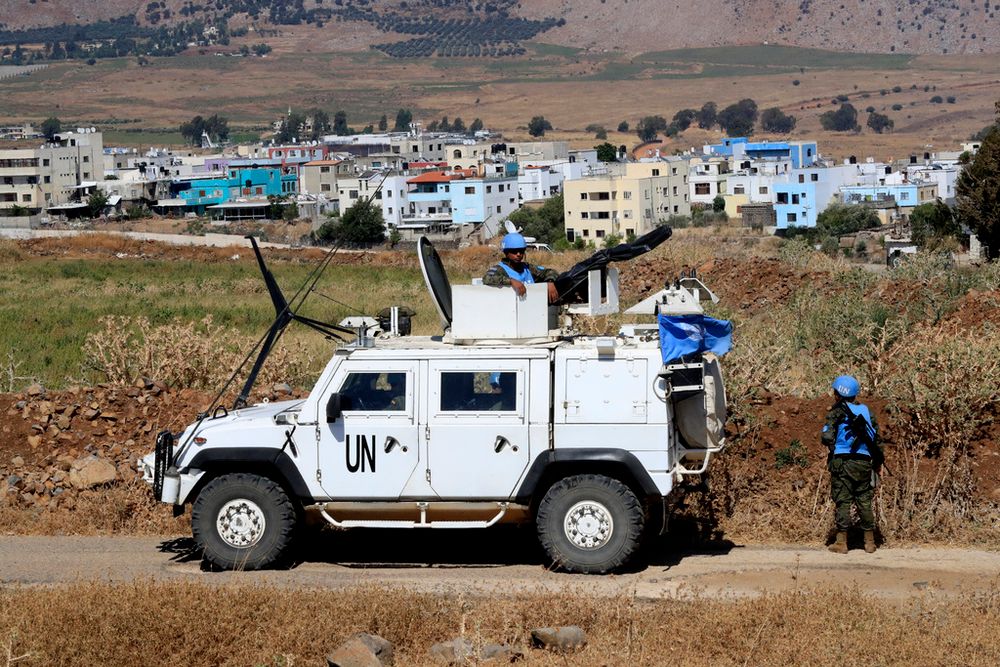Alwaght- In recent days, the end of mission of the United Nations Interim Force in Lebanon (UNIFIL) has been one of the most important debates regionally and internationally.
The mission of the force, stationed in Lebanon since 1978 following the Israeli invasion of the country and occupation of southern Lebanon, is about to expire again.
Every year, the UN Security Council decides on the extension or alternation of the mission of the UNIFIL, but this year the atmosphere of the UNSC debate on the peacekeeping force is different. Israel and the US openly oppose the continuation of UNIFIL's presence in its current form, and in contrast, Lebanon, with the support of France and some other countries, emphasizes the need to maintain these forces as a pillar of stability in the south of the country.
This clash of views goes beyond a technical decision on the presence of the UNIFIL and is tied to large matters like the future of Hezbollah and the plot to disarm it, the Lebanese relationship with the West, and even the regional equations after the 12-day war between Israel and Iran.
US and Israel’s pressure to restrict UNIFIL role
The opposition of Washington and Tel Aviv to the full extension of the UNIFIL mission is not a new issue. For years, Tel Aviv has doubted the effectiveness of these forces and claims that their presence has not prevented the expansion of Hezbollah's activities.
However, in 2022, an important change occurred: the Security Council, at the insistence of the US and its allies, approved an amendment that allowed UNIFIL to move south of the Litani River without coordination with the Lebanese army. This change was met with strong objections from Hezbollah, and even some political factions in Lebanon considered it a violation of national sovereignty.
Now the US and the Israeli regime have gone a step further. They not only oppose the full extension of the mission, but also try to include a timetable for the gradual withdrawal of peacekeeping forces in the new resolution.
According to Washington and Tel Aviv, if UNIFIL stays in Lebanon, it should have a different mission: facilitating the process of disarming Hezbollah within the framework of the recent ceasefire agreement and ensuring the security of the borders under the control of the Lebanese army, which in fact, given the army's obvious military weakness in defending the country's territorial integrity against the regime's aggression, means the complete loss of Lebanon's defense capabilities and leaving the Israelis free to continue their violations and occupy more Lebanese territory.
This position clearly shows that the Americans and Israelis want the peacekeeping mission instrumentalized to pressure Hezbollah and change the balance of power in southern Lebanon.
France’s role and the grouping at the UNSC
Traditionally, France has played a major role at the UN peacekeeping mission in Lebanon: Both in term of presence of its forces within the UNIFIL and also due to its historical relations with Lebanon. In the current situation, Paris has prepared a draft resolution for the mission extension and is trying to build a consensus among the members of the Security Council. France's goal is to, on the one hand, maintain its historical influence in Lebanon by defending the government's positions and for the Beirut government to take steps to increase its control over the borders, and on the other hand, to advance the internal and international space in line with the government's tendency to advance the process of disarming Hezbollah.
But the path to consensus is far from easy. The US and Israel are pushing for stricter terms to be included in the resolution. Russia and China also usually oppose such changes, considering them a politicization of peacekeeping missions. These differences have caused the closed-door Security Council meetings to be tension-hit.
According to the French draft resolution, UNIFIL will be extended for another year, but the text of the resolution refers to the gradual withdrawal of these forces by 2026. This clause is the main point of disagreement: for Lebanon and its allies, any reference to the exit timetable could be seen as a negative message and a green light for Israel.
Stances of Lebanese army and government
In his official announcement, President Joseph Aoun of Lebanon called for continuation of the UN mission. In his meeting with the commander of the UNFIL, Aoun said that any change to the mission or its withdrawal will negatively impact the security in the south of the country. He added that these forces are essential to adoption of the UNSC's resolution 1701 since part of the Lebanese territory remains occupied by the Israeli regime.
The Lebanese government has also sent a message to the UNSC, informing it that the army is strengthening itself in the south and will increase its forces to 10,000. However, the army's capability to replace the UNIFIL remains a question. Lebanon is economically crisis hit and the army is suffering from shortage of equipment and financial resources. So, the Lebanese officials believe that hasty withdrawal of the UN peacekeepers can leave a major security vacuum.
UNFIL, Hezbollah, and the resolution 1701
UNIFIL has faced numerous challenges since its presence in Lebanon. The most important challenge is its complex relationship with Hezbollah. On the one hand, these forces are required to help implement resolution 1701, which calls for a cessation of hostilities and the disarmament of armed groups in the south. On the other hand, Hezbollah, as the force that is the practical defender of Lebanon against the aggression of the Israeli regime, has repeatedly protested UNIFIL’s performance and inaction in the face of the repeated aggression of the Israeli army and actions without coordination with the army.
The ceasefire agreement between Israel and Hezbollah in November last year added a new dimension to the story. According to this agreement, in exchange for the complete withdrawal of the Israeli army forces from Lebanese territory and the non-violation of the territorial integrity of the country, Hezbollah also agrees to withdraw from the border areas south of the Litani River by the end of the year and dismantle its military infrastructure. In return, the Lebanese army and UNIFIL forces will assume responsibility for controlling the area.
The US and the Israeli regime have used this agreement as a pretext to limit Hezbollah's military role, but the main issue is that Israel has been the main violator of the February 2024 ceasefire agreement by continuing to occupy five points in southern Lebanon and carrying out daily attacks on the southern regions of the country, which have resulted in human casualties and financial losses.
Hezbollah argues that the UNIFIL should not become a tool for implementing Washington and Tel Aviv's policies. Although the resistance movement has not publicly opposed the extension of the mission so far, it has warned against any amendment to its powers that could be considered a direct interference with it.
Upcoming scenarios for Lebanon and the region
As the date of the vote in the Security Council draws closer, several scenarios are considerable:
1. Full extension with limited changes
In this case, UNIFIL will be extended for another year and the reforms proposed by the US and Israel will not be fully incorporated into the resolution. This scenario is the preferred one for Lebanon, France, Russia and China. The result will be continued relative stability in the south, although the pressure on Hezbollah will remain, but the military equation in the south will still not be as desired by Israel and the US, and Hezbollah will retain its military power and deterrence.
2. Conditional extension with reference to gradual exit
This is what the French draft resolution seeks. In this case the UNIFIL will remain in Lebanon by 2026, but a timetable for its withdrawal will be set. This a worrisome option for Lebanon since it will encourage Israel to step up its military actions in the near future.
3. Not extending and early withdrawal
This is a less likely but possible option if the US resorts to heavy pressure. This scenario could create a serious security vacuum and open the way for new conflicts between Hezbollah and Israel.
Conclusion
The debate over UNIFIL mission goes beyond a tactical case discussed by the UNSC. It is a reflection of broader regional and international disputes. The Israeli regime and the US want to turn the presence of peacekeepers into a lever to contain Hezbollah, while Lebanon, France, and their allies underscore the role of these forces as as pillar of stability.
For Lebanon, this diplomatic battle is a big test. On the one hand, Beirut should demonstrate to other actors that it is capable of protecting country's sovereignty and security in the south and on the other hand, it cannot secure the country's shaky security without Hezbollah given the weakness of the army. So, the outcome of the debate will not only affect the future of Hezbollah but also Lebanon's political and security path and even the power equation in the whole region.



























